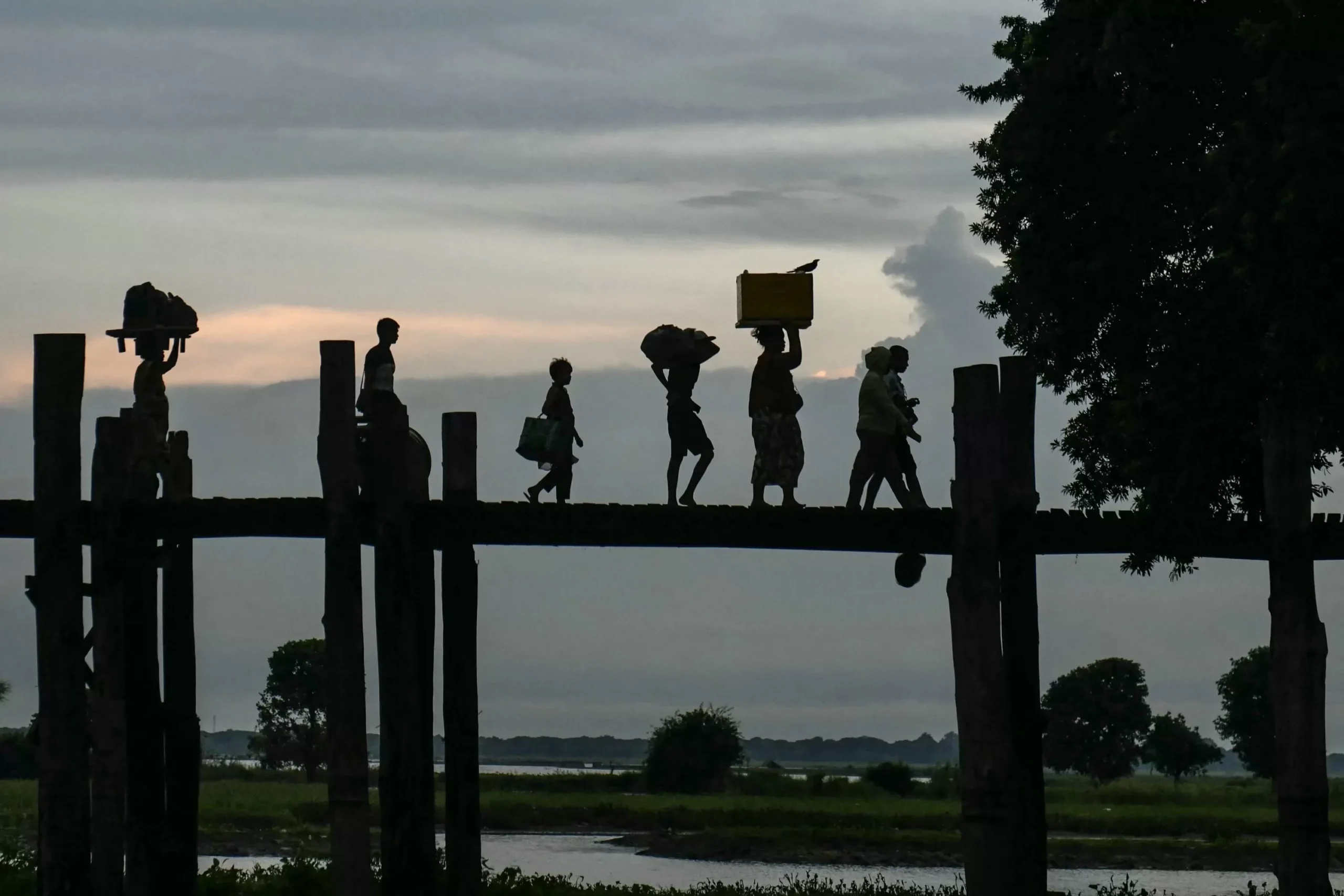Myanmar’s War-Torn Rakhine State Faces Imminent Famine
The beautiful and once thriving Rakhine state of Myanmar is now facing a major crisis. A United Nations report has recently sounded an alarm, stating that more than 2 million people in Rakhine are at risk of starvation. This is a grim situation that should not be taken lightly. The people of Rakhine are struggling to survive amidst the ongoing conflict and violence that has torn their land apart.
The main cause of this dire situation is the decrease in rice production in the western part of the state. Rakhine is known as the ‘rice bowl’ of Myanmar, with its fertile land and favorable climate for agriculture. However, the ongoing conflict between the Myanmar military and the Arakan Army has left farmers unable to tend to their lands and crops. The constant fear and danger have forced many to flee their villages, leaving their fields abandoned.
The United Nations Food and Agriculture Organization (FAO) has reported that the rice production in Rakhine has declined by 50% compared to the previous year. This is a significant drop that has left the state highly vulnerable to food shortages. Rice is the staple food of Myanmar, and the decrease in production has not only affected the people of Rakhine but also the whole country.
The situation is especially dire for the internally displaced people (IDPs) who have been forced to flee their homes due to the conflict. These people have lost everything – their homes, their livelihoods, and their sense of security. They are now living in overcrowded camps with limited access to food and clean water. The recent COVID-19 pandemic has only worsened their situation, with many struggling to even afford basic necessities.
The FAO has also highlighted the impact of the conflict on the fishing industry, another vital source of food and income for the people of Rakhine. The fishing communities have been caught in the crossfire, with many of their boats and equipment destroyed. This has not only affected their livelihoods but has also led to a decrease in the supply of fish, further exacerbating the food crisis.
The United Nations and other humanitarian agencies have been working tirelessly to support the people of Rakhine. However, access to the affected areas is limited, making it difficult to provide aid to those in need. The ongoing conflict and restrictions imposed by the government have hindered the delivery of much-needed assistance.
In light of the situation, the United Nations and humanitarian agencies are calling for immediate action to prevent a full-blown famine in Rakhine. The FAO has appealed for $12 million to support the affected communities and provide emergency assistance. This funding will be used to support smallholder farmers, provide food assistance, and rebuild the fishing industry.
It is crucial for the government of Myanmar to take immediate action to end the conflict in Rakhine. This will not only save lives but also allow farmers to return to their lands and rebuild their lives. In addition, the government should facilitate access to aid for the affected communities and ensure their safety and well-being.
The people of Rakhine have already suffered enough. It is time for the international community to come together and support them in their time of need. We must not let another famine happen in our world, especially when it can be prevented. Let us join hands and provide hope and support to the people of Rakhine, who deserve to live in peace and dignity.
In conclusion, the situation in Rakhine is critical, and urgent action is needed to prevent a famine from occurring. The decrease in rice production and the impact on the fishing industry has left the state vulnerable to food shortages. We must act now to support the affected communities and end the conflict in Rakhine. Let us not turn a blind eye to this crisis and come together to make a difference. Together, we can save lives and prevent a humanitarian disaster.






![Complete BritRail Pass Guide [Types, How to Use It, Pros + Cons]](https://inside-news.uk/wp-content/uploads/2025/06/00221EB4-BCA2-4DBB-6CD4-83DBC37D71FA-120x86.webp)














